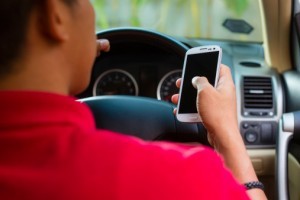 Governor Rick Scott is winning praise for signing the new law that bans texting while driving. The real winners, however, are the state residents, as distracted driving accidents in Florida are expected to drop because of the new measure.
Governor Rick Scott is winning praise for signing the new law that bans texting while driving. The real winners, however, are the state residents, as distracted driving accidents in Florida are expected to drop because of the new measure.
The law classifies sending texts, emails or instant messages while operating a vehicle as a secondary offense, and takes effect on October 1, 2013. This means that police officers can ticket a driver who has been pulled over for another violation.
In a written statement by U.S. Transportation Secretary Ray LaHood, Governor Scott and the Florida legislature should be commended for their decision to enact a ban on texting while driving. This new law is a step closer to encouraging all of the 50 states to pass legislation on distracted driving.
A total of 41 states and the District of Columbia have outlawed texting while driving. Ten states prohibit drivers from using handheld cell phones while driving.
David Strickland, NHTSA Administrator, stated that texting while driving is among the most irresponsible and dangerous decisions that a driver can make, and that the state of Florida is sending a strong message that all drivers should be free of distractions.
One in Five Crashes Are Distraction-Related
In 2011, there were 3,331 deaths and 387,000 injuries in distracted driving crashes nationwide. Almost 20 percent of all auto crashes are distraction-related.
Distracted driving, of course, goes beyond texting behind the wheel. It includes other activities that could possibly divert a person’s attention away from the primary task of driving. Some other types of distractions include:
- Using a cell phone, smartphone or tablet
- Drinking or eating
- Reading
- Talking to passengers
- Grooming
- Studying maps
- Using a navigation system
- Watching a video
- Adjusting a radio, CD player or MP3 player
All distractions are dangerous to drivers, passengers, pedestrians and other motorists.




